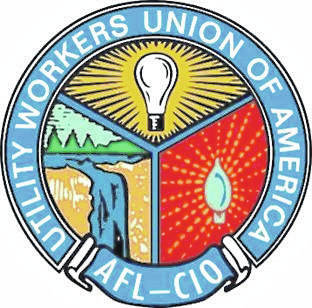
Ongoing labor negotiations between Highland County Water Company (HCWC) and Utility Workers Union of America Local 477-W now involve the federal National Labor Relations Board.
In a complaint issued against the local utility Wednesday, the union alleged that HCWC had violated federal labor laws in contract negotiations with 14 hourly workers represented by the union.
The complaint by the federal agency was based on a charge filed by the union, alleging management engaged in illegal bargaining tactics, including refusal to provide information to the union, which Mark Brooks, special counsel to the national president, said was necessary for negotiations.
At issue, as described in the complaint, was a union request for a copy of the company’s current asset management program filed with the state of Ohio.
The complaint stated that the union filed the request on Oct. 16, 2019, and that since Nov. 3, 2019, the company has failed and refused to furnish the information to the union.
“The asset management program will contain a great deal of information that’s important to our ability to bargain,” Brooks said. “For example, worker safety, workloads, working conditions and even job security.”
Hattie Lovedahl, general manager of water company, said that there have been several NLRB complaints filed by the union, which she said has been a part of ongoing contract negotiations with local 477-W.
She said the union has not agreed to meet with the company since December 2019, and contends this is the latest attempt to pressure the company into an agreement.
“We did receive notice regarding one of the complaints from the NLRB and the fact that the NLRB has agreed that information should be provided to the national union representatives,” Lovedahl said in an email to The Times-Gazette. “This particular charge/complaint was regarding turning over details of subcontractors that have worked for us including invoices, rates of pay, correspondence, contracts, etc. Our subcontractors are large equipment providers and operators, some on large projects, since we do not have the equipment or the resources to complete these tasks in-house. The company position was that the information was not relevant to the contract negotiations and that the details should be considered confidential.”
Brooks disagreed, adding that even though the company is claiming confidentiality concerning asset management, it is required to show why it is confidential and then offer to bargain in ways that allow the union limited access to the information while at the same time protecting anything that would be considered legitimately confidential.
Union communications director Erin Bzymek said that the NLRB complaint upholds a charge filed by the union that the company illegally refused to provide documents concerning management’s subcontracting of hourly employees work, as well as information concerning workers health, safety and job security.
Lovedahl addressed the complaint for the asset management plan request, saying that though it was mandated by the Ohio EPA in October 2018, it is a document that company management and its board of directors employs to system assets including their maintenance and condition, to determine a timeline and resources for updates.
“Again, we did not feel that this was relevant to the contract negotiations and that the plan included details that would be unique to our system and confidential in nature,” she said.
Lovedahl said the asset management plan stemmed from the 2017 Ohio Senate Bill 2, which directed the Ohio EPA to develop an asset management requirement for public water systems like HCWC, which she said were directly attributed to the Flint, Michigan and Seabreeze, Ohio water system failures that took place in 2016 and 2017.
“I am not sure how they are directly connecting this to their claim regarding workers’ health, safety and job security to this document,” she said. “The Ohio EPA is concerned about financial stability and system infrastructure.”
The collective bargaining agreement with the local union expired on Aug. 15, 2019, Lovedahl said, with union members continuing to work under the terms of the old contract as good faith negotiations continued.
“The company has demanded unfair concessions from workers, including the right to contract out every employee’s job, to eliminate neutral third-party arbitration from the grievance procedure, and to eliminate basic workplace safety protections,” Bzymek’s email concluded. “Management’s illegal refusal to provide bargaining information to UWUA has frustrated the parties’ efforts to conclude a fair agreement.”
The NLRB document stated that the HCWC must answer the complaint by Wednesday, Aug. 26, and that at a later date and time, a hearing will be scheduled via video conference or in person at the John Weld Peck Federal Building in Cincinnati.
The Highland County Water Company is a private, non-profit water utility serving, at last count, nearly 11,600 members across parts of Highland, Adams, Brown, Clinton and Ross counties.
Reach Tim Colliver at 937-402-2571.


